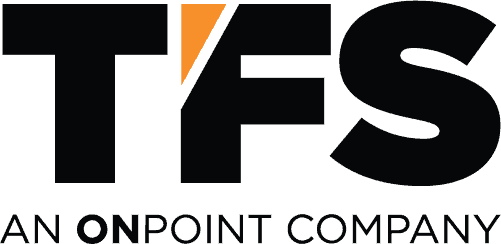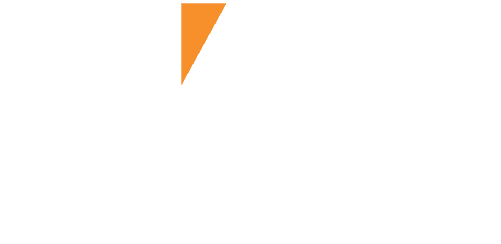 Finding operational savings and efficiencies can feel like squeezing blood from a stone. This is as true for CFOs as it is for private equity firms seeking optimal value from their investments. But as many dealing with material handling operations have discovered, optimization can be as simple as partnering with a forklift fleet management specialist.
Finding operational savings and efficiencies can feel like squeezing blood from a stone. This is as true for CFOs as it is for private equity firms seeking optimal value from their investments. But as many dealing with material handling operations have discovered, optimization can be as simple as partnering with a forklift fleet management specialist.
There are several reasons private equity firms are taking a fresh look at how (and with whom) they’re tackling forklift fleet management. That’s because material handling offers ample opportunities to eliminate redundancies, cut costs, and drive efficiencies, all of which have a positive impact on an investment’s EBITDA (Earnings Before Interest, Taxes, Depreciation, and Amortization).
“When private equity companies own a company, they are hyper-focused on three things: synergies, cost savings, and EBITDA,” says Tom Ryder, Chief Commercial Officer, TFS. “That’s where TFS comes into play.
According to Ryder, the private equity firms that partner with third-party material handling specialists generate value regardless of whatever mergers, acquisitions, divestments, or expansions the future holds.
Indeed, there are several ways third-party fleet managers can drive value across a private equity portfolio. Here are our top five:
1. Unified operations: Following a merger or acquisition, private equity firms often find themselves owning disparate departments, facilities, and operations that must be streamlined and optimized. As a result, finding synergies, optimizing resources (e.g., warehouses, equipment, staff, fleets, etc.), and eliminating redundancies are top priorities.
“There have been some big mergers in cold storage, where we’ve seen multiple billion-dollar companies coming together as one. When that happens, the owner now has three times the facilities, three times the fleets, and three times the problems,” Ryder said. “That can be a headache, but it also means they have three times the opportunities for synergy, and that’s where they would come to us to help find them and to manage that integration.”
“Whenever companies continue to purchase more companies while we’re their fleet manager, we always find excess equipment in the equation because they don’t know how to manage it,” Ryder said. “So, what we do is find ways to redeploy those resources, wholesale sell excess equipment, and give them options to use their assets more effectively over the long term.”
An integral part of that process is identifying how best to allocate teams and equipment, keeping in mind clients must remain agile when (and if) they expand.
In a volatile business or industry like private equity, it can be helpful to outsource critical but non-core parts of the business, such as fleet management, to partners who can provide expertise and stability.
2. Flexible fleet expenses: Private equity companies have deep pockets, but that doesn’t mean they’re eager to deploy capital on a company that will be sold in the next three to five years. That’s especially true with material handling because that equipment is a need-to-use, not need-to-own, asset class.
A fleet management specialist can suggest a variety of financing tools and strategies to enable firms to acquire the best equipment and meet any requirements for a PE firm’s capital structure, equity/debt goals, and other considerations. The right approach can maximize that investment.
And, while banks also finance fleets, they often lack flexibility and can hinder a company’s progress if it needs to downsize, right size, or transfer equipment from facility to facility.
3. Scalability and flexibility: Private equity companies are very focused on an M&A strategy, which means material handling needs to be agile. In our experience at TFS, we find the average facility typically has excess equipment in the 10-20% range. If a PE company ends up with 100 warehouses and shuts down ten, due to redundancy, that’s a lot of excess equipment to dispose of.
A fleet manager, in this case, should focus on optimizing operations by:
- Evaluating needs across all facilities, redeploying equipment as necessary
- Wholesaling any unneeded assets
- Selling or leasing assets to outside companies in their professional network
Disposal of unneeded assets is often a major logistical obstacle for companies, so having this help can be a major financial benefit.
4. Company-wide best practices: At a high level, comprehensive fleet management enables private equity firms to embed best practices across entire portfolios. This can significantly improve worker health and safety, material flow, cost-saving strategies, and other operational improvements.
“As we start to work with all their operations, we can identify what works best, and then we bring that to the next company, and then the next, as well as our own best practices that we know from 20-plus years in the business,” adds Ryder.
This can be especially helpful when a company is buying up businesses that have different processes, data, and safety standards.
5. EBITDA. These six little letters hold massive sway over private equity firms and although we listed it last, this factor often comes first for private equity. EBITDA is a financial method often used to compare similar businesses or to determine a company’s cash flow potential, so increasing it is an utmost priority for equity firms.
Bolstering the market value of any company takes several strategies, such as increasing growth and decreasing costs. As more and more private equity firms and finance execs are discovering, an excellent place to start is on the warehouse floor.
That’s because material handling is an often untapped area for savings. Surprisingly, it’s really unclear to many companies what they’re spending on their fleets, despite the fact that large companies can spend tens of millions of dollars a year.
“Ultimately, when you multiply the savings or improvements we deliver through our fleet management solutions across a portfolio, that’s exponential value,” says Ryder. “After all, if we can help multiple companies in one portfolio save a million dollars each, that results in huge savings for the firm and a higher profit when it comes time to sell.”
For private equity firms—and even regular distribution and production facilities—material handling offers a tremendous opportunity to create advantages. Since the status quo appears to be working fine, material handling often flies under the radar, left to operate as it always has, when, in fact, it’s ripe for savings. A fleet manager can provide the strategic eye you need to optimize your operations and make fleet costs a financial advantage.

